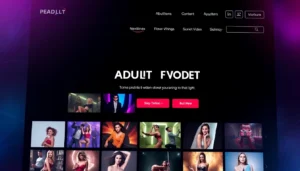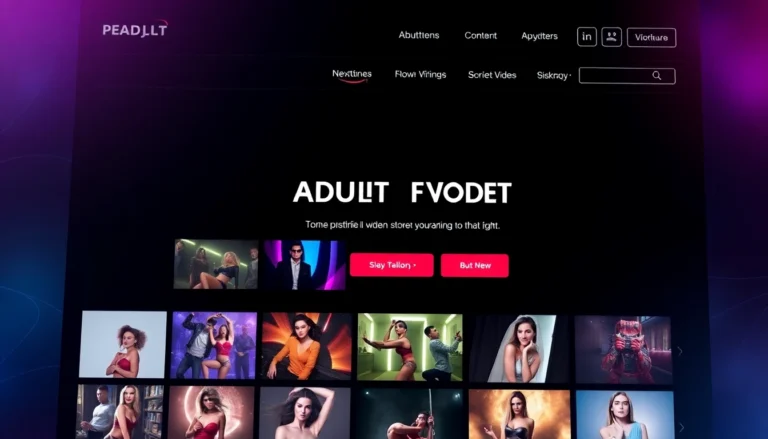Unveiling Naver: South Korea’s Leading Digital Ecosystem and Its Global Trajectory
In the dynamic landscape of global digital platforms, few companies have established the profound influence that Naver has within South Korea and increasingly around the world. Operating since 1999, Naver is more than just a search engine; it is a comprehensive digital ecosystem that integrates search, communication, commerce, and entertainment, shaping online culture and daily life for millions. For those exploring the core of South Korea’s online advancements or seeking innovative strategies for digital growth, understanding Naver’s multi-faceted approach provides valuable insights. To explore how Naver continues to evolve and innovate, visit naver for more nuanced perspectives on its growth and offerings.
History and Founding of Naver
Founded on June 2, 1999, by Lee Hae-jin and his team, Naver launched as South Korea’s first major web portal designed to meet the specific needs of Korean internet users. Amid a burgeoning online environment dominated by global giants, Naver sought to cater to local language nuances, cultural preferences, and unique internet behaviors that were underserved by international search engines like Google or Yahoo. The company’s strategic emphasis on localized content, user-centric features, and innovative technology allowed it to swiftly become the dominant web portal. Over the years, Naver’s growth has been driven by its ability to adapt rapidly, deploying a broad product lineup that encompasses search, blogging, email, digital maps, webtoons, and mobile applications, establishing itself as an indispensable part of Korean digital life.
Core Services and Product Ecosystem
Naver’s success stems from its expansive suite of core services, which collectively create a seamless and integrated user experience. These include:
- Search Engine: Naver’s search engine is tailored for Korean language and local content, employing sophisticated algorithms optimized for the Korean web ecosystem.
- Web Portal & News: A hub of real-time news, entertainment, and lifestyle content, catering to diverse interests.
- Blog & Knowledge iN: An influential blogging platform enabling users to share insights and expertise, fostering community engagement.
- Webtoons & Comics: An innovative digital comics platform that has gained international acclaim, fueling a new wave of citizen-created content.
- Mobile Payment & Fintech: Naver Pay and related services integrate financial transactions, making digital payments seamless within its ecosystem.
- Maps & Navigation: Naver Maps provides precise navigation tailored for Korean geography, with real-time traffic updates.
Each pillar is interconnected, enhancing user engagement and retention through cross-platform functionalities, ensuring users stay within Naver’s ecosystem for their digital needs.
Naver’s Role in South Korea’s Online Culture
Naver has profoundly shaped South Korea’s digital culture, integrating itself into daily routines and social interactions. Its dominant search engine is the gateway to South Korean online content, making it a trusted source for news, entertainment, and social networking. The platform’s Webtoon service revolutionized digital storytelling, drawing international fans while cultivating a unique Korean web-based art scene. Localized content tailored to Korean tastes—be it cuisine, fashion, or regional news—helps foster a strong national identity in the digital realm.
Moreover, Naver’s user-generated content platforms encourage community participation, influence consumer behavior, and inform public discourse. Its role extends beyond a static service provider; it actively cultivates the online lifestyle, culture, and economy of Korea.
Analyzing Naver’s SEO & Digital Strategies
Key Elements Behind Naver’s Search Engine Dominance
Naver’s tailored approach to SEO is rooted in understanding local language semantics, context, and user intents. Unlike Google, which excels at universal search, Naver prioritizes content relevancy generated through highly localized indexing techniques, including its proprietary categorization of blogs, news, and Q&A content. Its keyword strategy emphasizes Korean language nuances and popular cultural themes, driving high organic traffic within its domain.
Investments in AI-driven search algorithms and real-time data analysis allow Naver to refine user experiences continually, maintaining its dominance in South Korea’s search market with over 70% market share. The platform’s sophisticated filtering mechanisms also limit irrelevant content, improving search precision.
Content Optimization and User Engagement Tactics
Naver leverages community-driven content, such as webtoons and blogs, optimized with trending keywords and hashtags. It employs personalized recommendation systems powered by machine learning, increasing time spent on site. Furthermore, Naver encourages user interaction through comments, shares, and contests—building a loyal community that actively contributes to content freshness and relevance.
To enhance engagement, Naver also incorporates multimedia content like images, videos, and live broadcasts, catering to modern content consumption habits and boosting overall platform stickiness.
Leveraging New Technologies for Growth
Recently, Naver has invested heavily in AI, cloud computing, and smart service development, including Naver AI Search, Naver Clova, and Naver Labs’ R&D initiatives. These efforts aim to improve search precision, automate content curation, and enable advanced services such as voice recognition and augmented reality.
By adapting emergent technologies, Naver not only enhances user experience but also positions itself for future digital transformations—whether through AI-powered shopping, smart navigation, or personalized content delivery.
Naver’s Market Position and Competitor Landscape
Comparative Analysis with Global Search Engines
While Google dominates worldwide with over 90% of global search traffic, Naver’s localized strategies grant it unparalleled leadership within Korea. Its focus on Korean language, cultural relevance, and community content form a significant competitive advantage over Google. However, globally, Naver faces stiff competition from Google, Baidu in China, and Yahoo, especially in areas like international search and global e-commerce integrations.
Strengths and Weaknesses in the Local and International Sectors
Naver’s strengths include its reputation for local content, deep understanding of Korean user behavior, and continuous innovation in mobile and AI spaces. Yet, its weaknesses lie in limited international presence, potential over-reliance on the Korean market, and challenges adapting to global search engine dynamics.
Nevertheless, Naver’s expanding Webtoon and AI platforms provide pathways for international growth, leveraging South Korea’s tech reputation to enter new markets.
Opportunities for Expansion and Innovation
Internationalization efforts—such as localized versions of Webtoon, global AI services, and strategic partnerships—offer significant growth prospects. Investing in multilingual support, regional content, and cross-border e-commerce integrations could propel Naver beyond its traditional boundaries.
Maximizing Naver’s Platforms for Business & Personal Use
Strategies to Utilize Naver Blog, Webtoon, and Knowledge
For businesses aiming to harness Naver’s platforms, creating authoritative, keyword-optimized blogs can boost local visibility. Webtoon creators can reach vast audiences by producing culturally resonant content and leveraging Naver’s promotional tools. The Knowledge platform serves as a useful resource for customer education and brand authority, helping companies establish thought leadership.
Advertising and Monetization on Naver’s Network
Naver’s advertising tools—such as Naver Power Link and targeted display ads—allow precise demographic targeting within Korea. Monetization strategies include sponsored content, affiliate marketing, and premium webtoon or blog subscriptions. Additionally, small businesses can benefit from Naver Shopping and Pay’s integrated e-commerce tools for seamless sales funnels.
Building a Strong Brand Presence via Naver Tools
Consistent content creation, SEO optimization tailored for Naver’s ecosystem, and active community engagement are essential. Effective use of Naver’s analytics can help refine campaigns, maximize ROI, and foster ongoing customer loyalty.
Future Trends & Insights for Naver’s Growth
Emerging Technologies and Investments
Naver’s dedicated R&D arm, Naver Labs, focuses on AI, robotics, and augmented reality. Recent investments aim to develop autonomous vehicle maps, AI-driven content moderation, and smarter digital assistants—ensuring Naver remains at the technological forefront.
Global Outreach and Localization Efforts
Expanding Webtoon series internationally, localizing AI services for various languages, and forming strategic alliances can accelerate Naver’s global influence. Tailoring offerings for regional markets ensures relevance and user retention.
Predicted Challenges and How to Stay Ahead
Challenges include intensifying global competition, regulatory scrutiny, and technological disruption. To stay ahead, Naver must continue investing in innovation, prioritize user privacy, and diversify revenue streams—ensuring sustainable growth in a rapidly changing digital world.







